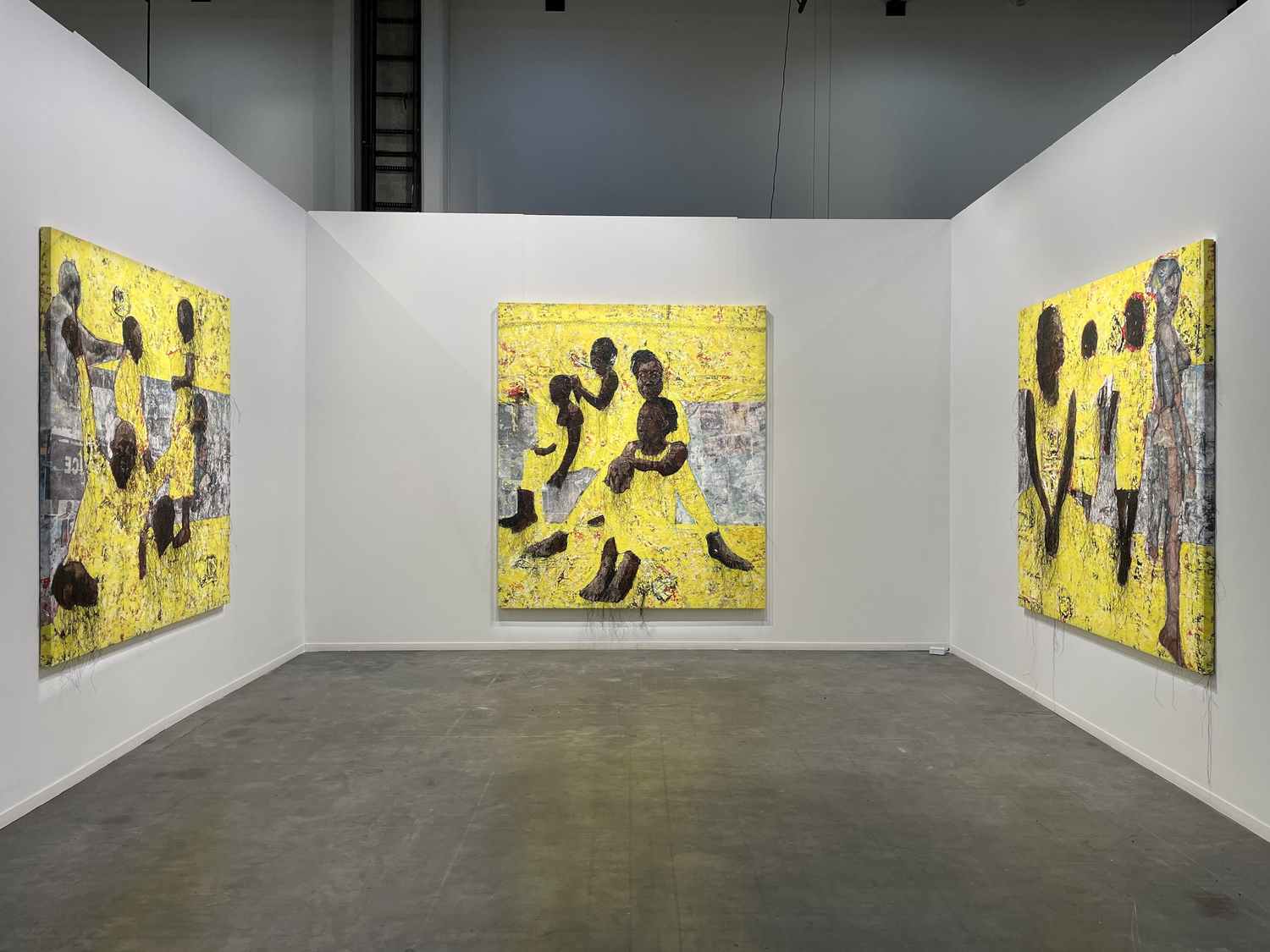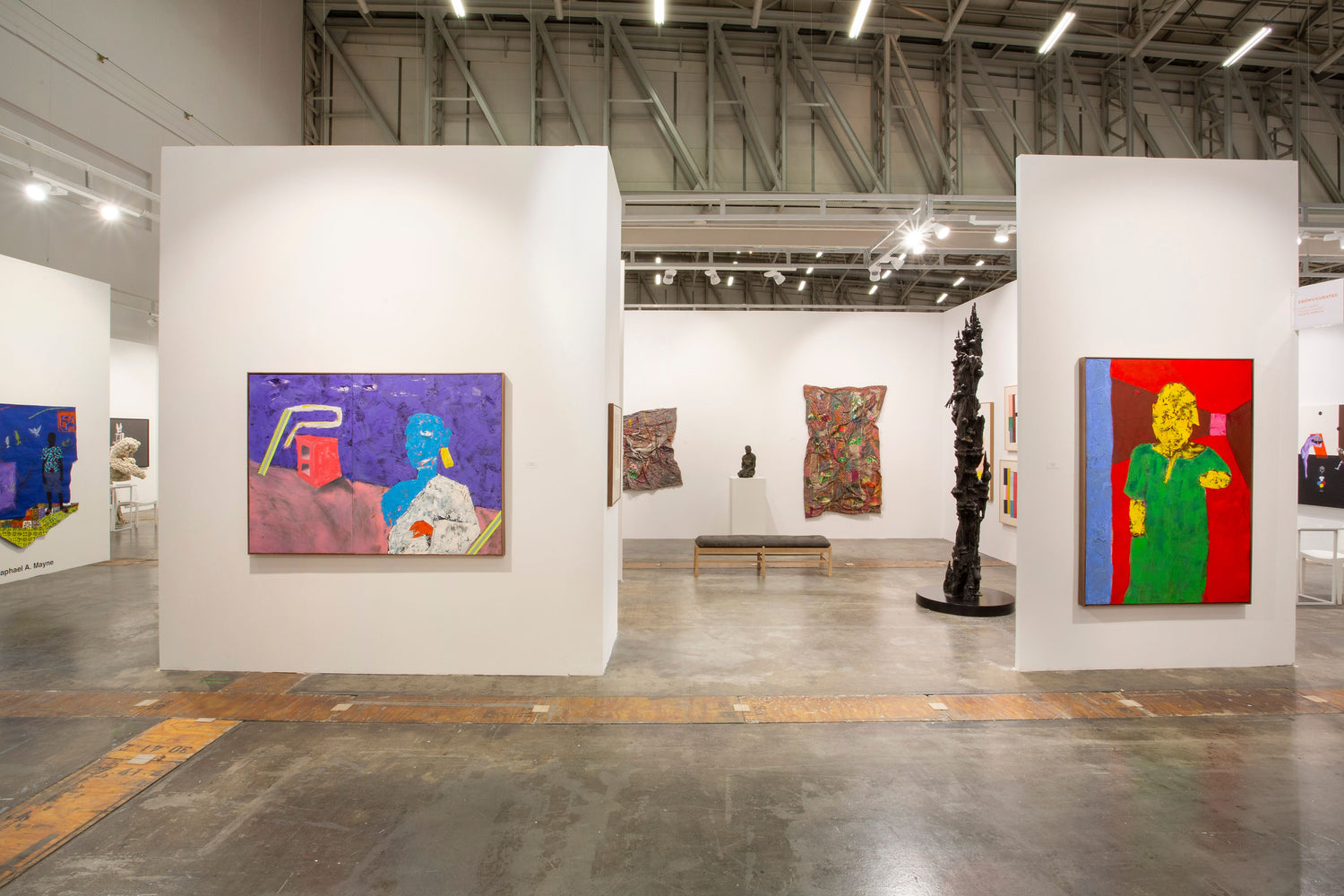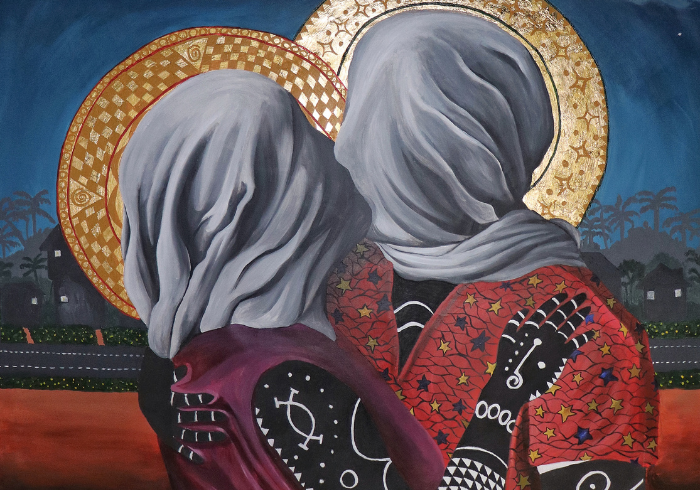Collection: 'I Am Not My Father' - Kaloki Nyamai
'I Am Not My Father'
Kaloki Nyamai
EBONY/CURATED, Loop Street
_____
Kenyan born artist Kaloki Nyamai (b. 1985) explores the parallels between the past and the present through richly-layered, multimedia works. Drawing heavily on the stories of the Kamba community narrated to him by his grandmother, Nyamai explores how history and identity are intertwined and how this has informed the identities of people living in present day, post-colonial Kenya.
As a starting point for his latest series I Am Not My Father Nyamai looks back to his father’s generation and unpicks what it meant to be black in a colonial system. Focusing practically on the historical representation of Blackness, Nyamai looks back through the lenses of the past and questions the principles that his father’s generation was raised on;
Imwana sieeyaa- Boys do not cry
Imwana tii maikone- The kitchen is no place for boys
Nyomba niiiwe- You are the head of the house
These principles were meant to mold men into ‘real’ men during an era of colonial rhetoric and suppression. The principles of western society were forced wholesale onto their societies and people were forced to accept the superiority of the enforced belief systems over their own.
So successful was this belief that it took away his first name and that of his children. It took away the praises for the sun and the mountains and the libation that poured forth from his lips. It made a foreign tongue his national language. So successful was this belief, that his children spoke the foreign language better than they spoke their own. He no longer gave audience to the traditional healers easily found within his homestead because the coloniser had exiled their teachings as witchcraft, convicted in their ignorant urgency to will their cures away.
- Kaloki Nyamai
There is no such thing as Africa without a history - Nyamai’s grandmother was determined to impress that idea on the minds and hearts of her son and later her grandson. She taught them about their roots and sung songs of truancy that shamed the oppressive regimes. She continued singing the songs of the oppressed people in front of political leaders both old and new. Eventually her courage lead to her arrest, as her songs highlighted the hypocrisy of the new regime which continued to oppress its people in the name of freedom from the colonial rule. To this day, Nyamai recalls, she has never sung in public again; she still fears.
These paintings, much like his grandmother’s songs, are created to interrogate the social constructs that have been forcibly woven into the fabric of Kenyan society. In order to start unravelling and understanding these effects, Nyamai focuses his attention on questioning the very core of his established identity and representations of what makes him ‘him’; “race, upbringing, social set up and politics all play a part in the cycle of carefully planned events you are born into, in which you had no control. In some ways it is the most subtle form of slavery. It demands submission and it is subtle. This subtlety quells resistance. Subtlety is comfortable, subtlety asks no questions and ruffles no feathers. Interrogation requires time, effort, realization of wrongs and what needs to be rectified. We have learned to adapt, to live in these boxes because even if we were to ask questions, what questions would we ask?”
At the core of his practice, Nyamai battles with what it means to be black in white spaces and the textured surfaces of his works reflect this struggle in their very construction. The paint is applied heavily and becomes scarred with cracks as it dries and the additional layers of ripped canvas that are pasted onto the original surface create a rich palimpsest of colour and texture.
Another recurring element in Nyamai’s work is the rectangular shapes that surround his subjects implying their isolation and entrapment. These recurring formal elements highlight his interest in the repetitive nature of human behavior, and through his work Nyamai questions the behaviors of people in post-colonial societies by positioning these difficult questions within the constructs of a skewed power dynamic.
When I say “I am not my father,” it is because my struggle is different from his. Because when he and the rest of the nation celebrated independence, it was nothing more than a saying. With pomp and flair, we clapped, rejoiced and waved flags on deceitful foundations. Independence meant a new education system, a fair system of governance and freedom of religion. But there was no thought of history. Most of what is associated with African history is as the place human origin and colonialism but nothing in between; political discourse around African history is presented as submissive. Yet we have a rich history of monarchy that is greatly diluted by a victim mentality approach to critical issues, both from within and without. We have ingenuity and elegance in stone art, dialects and African alphabets. But who is to pass on this undocumented knowledge if we do not respect and focus on our history? If we do not encourage the older generations to talk to current generations to understand our past – what shall become of this untransformed knowledge?











